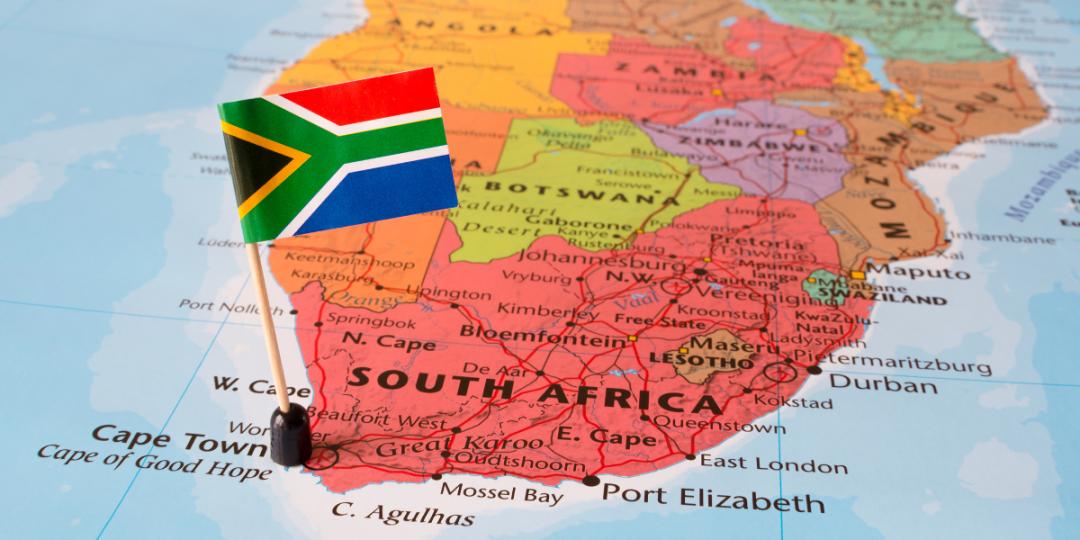The devastation and aftermath of looting and destruction of vital supply chain infrastructure in KwaZulu-Natal and Gauteng over the last week, after Jacob Zuma’s incarceration, will be felt for many years to come. Not only has it impacted hugely on the economy of the South Africa, but it has set the recovery of the economy back by at least 10 years, if not longer.
The estimated damage to the trucking industry alone is R250-R300 million in burnt-out trucks and cargo in the last five days - and counting. The damage to infrastructure through the burning of factories/warehouses and the looting of malls will run into billions of rands - and it will take a long time to rebuild and replenish supply to looted malls after rebuilding them.
The supply chain from the Port of Durban to Gauteng and cross-border has been completely cut off, with the N3 no longer passable for trucks to supply much-needed fuel, groceries, pharmaceuticals, and many other supplies. The food security in KwaZulu-Natal and Gauteng will be severely impacted over the next few months, and it will be a gloomy picture as those companies that have been impacted by the devastation try to rebuild and start again.
Many of the smaller businesses will not survive and unemployment will spiral out of control, creating more poverty for the already marginalised population of South Africa.
But this is just the tip of the iceberg for South Africa as the longer-term damage will be far greater than this. What has happened in South Africa in this last week has not only impacted on the economy of South Africa, but it has also impacted on other landlocked countries in the SADC region who rely heavily on South Africa for imports of fuel, groceries, pharmaceuticals, mining equipment/spares, vehicle spares, tyres, etc etc etc ……. Those countries that have used South Africa as a transit route for exports through the Port of Durban will now turn to alternate routes for exports such as Walvis Bay, Beira, and Dar es Salaam. The Port of Durban has already in the last few years seen a decline in exports of copper and cobalt from the Copperbelt in Zambia and DRC due to inefficiencies, and the Port of Dar es Salaam now exports 73% of all DRC’s copper. The Ports of Walvis Bay and Beira have both recently built world-class container terminals that can now challenge the Port of Durban. They are more efficient, and their costs are lower than the Port of Durban.
Landlocked countries like Lesotho and Swaziland will be particularly hard hit by the situation in South Africa. Lesotho is totally reliant on South Africa for all it is imports - except for textiles for the garment manufacturing industry which supports around 40 000 workers. These textiles, which are imported from global markets, are nearly all imported through the Port of Durban, and this supply will be severely impacted by the events in KwaZulu-Natal.
They also export all finished garments through the Port of Durban in containers that are uplifted by road in Maseru and transported to Durban. This supply chain has now been completely cut off and the textile industry in Lesotho is just recovering from a month-long strike over wage issues in May/June this year.
Swaziland itself is still reeling from recent violent protesting, looting, and burning of infrastructure, which has caused shortages of food and fuel in the country. The situation in South Africa will not help their cause as they try to rebuild after the aftermath of the devastation in their country. Therefore, the spinoff of the devastation and looting in South Africa has far-reaching impact on the entire SADC region and does not bode well for South Africa’s global image.
It will not surprise me if we see some large-scale disinvestment in the country as we did in the apartheid era. We are also likely to see further downgrades to junk status by the likes of Moody’s, Fitch, and Standard & Poor’s in the short term, and the rand is likely to breach the R15 to the dollar mark very soon.
Despite all the doom and gloom there is one positive to look forward to. South Africans by nature are resilient people, as is the trucking community, and we stand together when we are hurting the most. We will rise from the ashes of devastation and come out stronger and smarter than ever before - that I can assure everyone in South Africa. We will not let what has happened in the last week define us, we will overcome and conquer.
Michael Fitzmaurice
Executive Director










